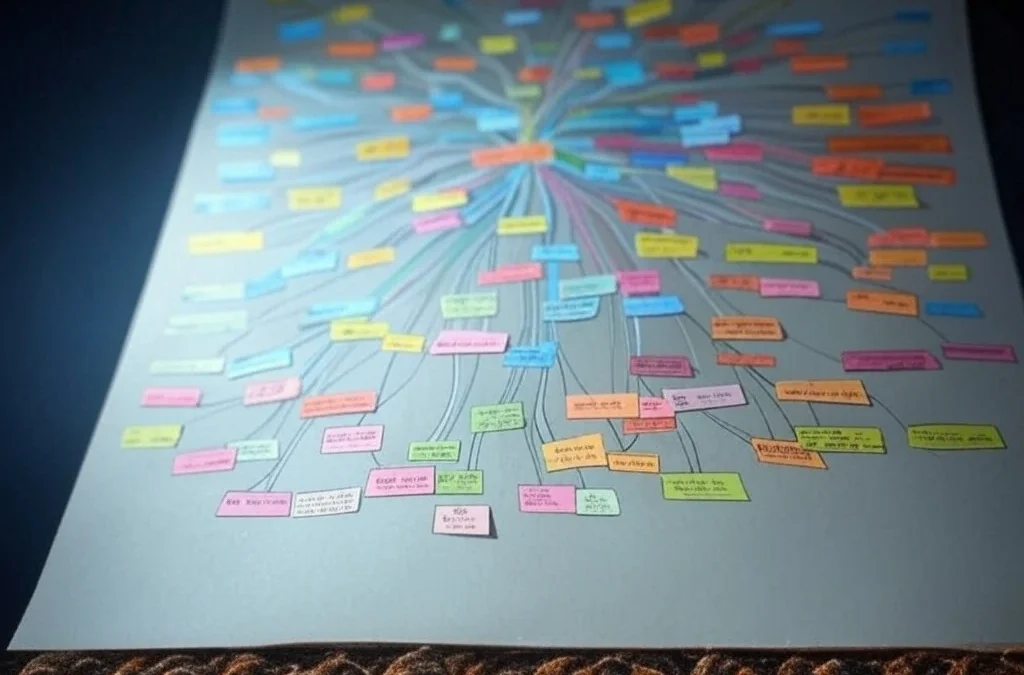Optimism is more than just looking on the bright side. It’s a mindset that shapes how people face challenges, make decisions, and live their everyday lives. In a world where stress and uncertainty are common, optimism offers a different way to think—and a better way to cope.
Many people talk about being positive, but few really understand what optimism looks like in action. It’s not blind hope or ignoring problems. It’s the belief that things can get better, even when the present moment is hard. And that belief can change how someone responds to failure, stress, or loss.
In this article, you’ll find real-life examples of optimism, clear explanations, and insights into the different types of optimistic thinking. Whether you’re trying to understand the meaning of optimism or just want to recognize it in daily life, this guide will help you see how powerful—and practical—positive thinking can be.
What Is Optimism?
Optimism is the belief that good things are possible, even during difficult times. It’s a positive mindset that focuses on hope, improvement, and the expectation that challenges can be overcome. Optimistic people tend to look for solutions instead of dwelling on problems. They believe that setbacks are temporary and that better days are ahead.
In psychology, optimism is often linked to emotional well-being, resilience, and a greater ability to handle stress. It doesn’t mean ignoring reality or pretending everything is perfect. Instead, it means choosing to focus on what can go right rather than what might go wrong.
Simply put, optimism is seeing the glass as half full—not because you’re ignoring the empty part, but because you believe it can be filled.
The Best Examples of Optimism
These examples of optimism show how a positive mindset can appear in everyday situations. From small moments to major life challenges, each example highlights what it really means to stay hopeful and forward-looking.
1. Smiling During Tough Times
When life gets hard, an optimistic person still finds a reason to smile. It’s not about ignoring problems. It’s about believing that better days are possible, even if today is difficult.
2. Believing in Second Chances
Optimism is believing everyone deserves another chance to get things right. It’s seeing potential where others might see failure.
3. Looking for Positives in a Bad Day
Even after a stressful day, an optimistic person can point to one good thing—maybe a kind word from someone, or simply getting through it. That mindset makes tomorrow feel more hopeful.
4. Planning Ahead Despite Uncertainty
Being optimistic means planning your future even when you’re unsure about outcomes. You believe things will turn out fine eventually.
5. Cheering for an Underdog Team
Rooting for a team that rarely wins is a simple but real act of optimism. It shows belief in effort, potential, and the idea that today’s underdog might surprise everyone tomorrow.
6. Staying Calm During Mistakes
When things go wrong, an optimist stays calm. They trust in their ability to solve problems instead of panicking or giving up.
7. Seeing Opportunities in Problems
Optimistic people see problems as opportunities to learn and improve. They don’t view difficulties as threats, but as valuable lessons.
8. Recovering Quickly After Failure
After failing a test or losing a job, an optimist picks themselves up quickly. They believe setbacks are temporary, not permanent.
9. Hoping for the Best in Others
Optimism involves seeing good intentions in others. Even when disappointed, optimistic people trust others again.
10. Trying Again After Rejection
After rejection, optimists don’t quit. They keep applying for jobs, making new friends, or asking people out again, hopeful about better outcomes.
11. Positive Thinking During Illness
When facing illness, an optimist focuses on healing and staying strong. They hold onto hope, follow treatment, and believe recovery is possible—even if it takes time.
12. Enjoying Simple Moments
Optimistic people genuinely appreciate small, everyday pleasures—like drinking coffee on a peaceful morning. They value small joys deeply.
13. Expecting Positive Outcomes
Optimism is believing good things will happen, even without proof. Positive expectations help optimism grow stronger.
14. Encouraging Others When Things Go Wrong
Optimists don’t just lift themselves—they lift others too. In hard moments, they remind people that things can improve. Their words help others feel stronger and more hopeful.
15. Taking Risks for New Experiences
Optimists willingly take risks because they believe experiences will turn out well, or at least lead to growth.
16. Making Plans for Sunny Days
Optimists make outdoor plans assuming the weather will cooperate. Even when it rains, they easily adjust their plans without frustration.
17. Learning From Past Mistakes
An optimistic viewpoint involves learning from mistakes rather than dwelling on them. Optimists see errors as stepping stones.
18. Facing Fears With Courage
Optimistic people face their fears directly because they trust things will ultimately be fine, even if uncomfortable.
19. Appreciating Criticism as Feedback
Optimists hear criticism as helpful feedback. Instead of feeling discouraged, they use critiques to improve.
20. Celebrating Small Successes
Optimists celebrate small wins enthusiastically. They believe acknowledging small progress builds confidence and joy.
21. Trusting Others Easily
Optimistic individuals quickly trust new people, expecting honesty and kindness rather than anticipating deceit or harm.
22. Seeing Setbacks as Temporary
Optimism means understanding setbacks won’t last forever. Optimists believe in improvement and positive change ahead.
23. Forgiving Quickly
An optimistic mindset makes forgiveness easier. Optimists quickly forgive because they prefer peace over conflict.
24. Hoping for Recovery After Financial Loss
When facing financial troubles, optimists stay hopeful. They believe they can recover financially through steady effort and resilience.
25. Believing in Love After Heartbreak
After heartbreak, optimistic people remain open to love. They believe genuine happiness still awaits them.
26. Positive Expectations for the Future
Optimists naturally expect the future to be brighter, happier, and more fulfilling than today.
27. Making the Best of Unexpected Situations
When plans go awry, optimists adapt happily. They find enjoyment even in unexpected changes.
28. Confidence in Their Own Abilities
Optimists genuinely believe in their ability to accomplish goals, trusting their skills and persistence.
29. Staying Cheerful During Traffic Jams
Rather than being annoyed by traffic, optimists use the time to enjoy music or podcasts, maintaining good spirits.
30. Encouraging a Friend After Failure
Optimistic people naturally uplift friends after setbacks, providing emotional support and hope for better outcomes.
31. Making Friends in New Places
Optimists comfortably approach strangers, confident these new connections will lead to positive friendships.
32. Remaining Upbeat During Job Searches
Even when job hunting becomes frustrating, optimists continue applying confidently, trusting that the right opportunity will come.
33. Showing Enthusiasm at Work
Optimistic employees remain enthusiastic, knowing their positive attitude can improve their work environment.
34. Expecting Good News in Medical Tests
Even awaiting medical test results, optimistic people maintain a hopeful outlook, believing good news will arrive.
35. Moving Forward After Losing a Loved One
After losing someone dear, optimistic people slowly rebuild their happiness, cherishing positive memories over grief.
36. Choosing Gratitude Over Complaints
Optimism is clearly shown when people prefer expressing gratitude rather than complaining about what’s lacking.
37. Enjoying a Rainy Vacation
Optimists find ways to enjoy vacations despite bad weather, finding fun indoors rather than feeling disappointed.
38. Being Hopeful During Relationship Struggles
When relationships face problems, optimists trust that conflicts can be resolved through conversation and compromise.
39. Seeing Job Loss as a Chance for Better Things
Instead of despairing after job loss, optimistic people view it as an opportunity to find a better, more satisfying role.
40. Laughing Off Embarrassment
An optimistic person easily laughs off embarrassing moments instead of dwelling on shame or discomfort.
41. Believing Things Improve With Effort
Optimism is shown when people believe hard work will eventually lead to positive outcomes, even when results seem slow.
42. Smiling at Strangers
Optimists warmly smile at strangers, believing simple kindness brightens everyone’s day.
43. Trying New Hobbies Happily
Optimistic people confidently explore new hobbies, excited to learn and trusting they’ll enjoy the experience.
44. Seeing Illness as Temporary
Even during long-term illnesses, optimistic people trust improvement will happen, focusing their minds positively.
45. Being Confident in Public Speaking
Optimists confidently speak publicly, believing their message will be received well despite potential mistakes.
46. Believing in Good Outcomes During Travel
Optimists travel confidently, trusting journeys will be safe and enjoyable, not filled with mishaps.
47. Enjoying Unexpected Guests
Optimists welcome unexpected visitors warmly, believing that spontaneous interactions often lead to great memories.
48. Encouraging Children Positively
Optimistic parents encourage children through positivity and gentle reassurance, believing their kids will flourish.
49. Anticipating Good Outcomes in Negotiations
Optimists go into negotiations with a belief that both sides can win. They don’t focus on conflict—they focus on finding common ground and walking away with a fair result.
50. Always Expecting to Find Lost Items
Optimists keep searching confidently when items are lost, fully believing their efforts will eventually pay off.
51. Seeing Good in Bad Weather
An optimistic person views a stormy day as the perfect chance to relax indoors rather than feeling disappointed.
52. Trusting Others After Disappointment
Even after being let down, optimists continue to believe people are generally good and reliable.
53. Expecting Positive Feedback at Work
Optimists anticipate praise or constructive feedback at work instead of assuming negative criticism is coming.
54. Wishing Good Luck to Competitors
An optimistic athlete genuinely wishes success to competitors, trusting there’s enough room for everyone to succeed.
55. Believing in Quick Recovery from Injury
After injury, an optimist actively imagines their body healing fast and remains committed to recovery.
56. Staying Calm in a Crisis
Optimists remain calm during emergencies because they trust solutions will arise if they keep their cool.
57. Starting Over After Bankruptcy
An optimistic entrepreneur restarts their business confidently after bankruptcy, certain they’ll succeed eventually.
58. Being Confident in Tough Decisions
Optimists make difficult choices believing outcomes will eventually justify their decisions.
59. Viewing Aging as a Positive Experience
An optimistic elderly person looks forward to the joys and freedom aging can offer rather than fearing it.
60. Trying Again After Losing a Competition
Optimists keep practicing after losing, believing the next competition could turn out differently.
61. Being Cheerful After Missing a Flight
When missing flights, optimists see the extra waiting time as an opportunity to rest or enjoy unexpected downtime.
62. Expecting Quick Recovery from Economic Recession
Optimists keep faith in economic recovery, even when things look uncertain. They believe hard times won’t last forever—and history often proves them right.
63. Believing the Best about Strangers
Optimists assume strangers will treat them kindly and fairly, even without previous interactions.
64. Viewing Negative News as Temporary
Optimists watch troubling news believing things will soon improve rather than getting overly distressed.
65. Confidence in Career Change
When changing careers, an optimist believes the new path will provide greater fulfillment and happiness.
66. Hoping for Success in Creative Projects
Optimists always assume their art or creative projects have the potential to succeed, motivating further efforts.
67. Seeing Challenges as Exciting Adventures
Optimists approach new tasks with excitement, viewing challenges as adventures rather than obstacles.
68. Expecting Kindness from New Neighbors
An optimistic person assumes their new neighbors will be friendly, looking forward to pleasant interactions.
69. Embracing Change in Life Situations
Life doesn’t always go as planned. Optimistic people accept changes, even the unexpected ones, with the belief that something good can still come out of them. They adapt and look forward instead of getting stuck in fear or frustration.
70. Maintaining Positivity in Long-distance Relationships
Being far apart isn’t easy, but optimists trust in emotional closeness. They focus on communication, shared goals, and the belief that the distance is only temporary.
71. Facing Job Interviews With Confidence
Optimistic job-seekers confidently enter interviews believing their personality and skills will be appreciated.
72. Finding Bright Sides in Cancelled Events
When a long-awaited event gets cancelled, an optimist doesn’t stay upset for long. They quickly shift gears, make new plans, and focus on what can still be enjoyed in the moment.
73. Expecting Promotions at Work
Optimistic employees believe they’ll eventually receive promotions through consistent effort and hard work.
74. Being Open-hearted After Betrayal
Even after betrayal, optimists choose to open their hearts again, believing new friendships will be genuine.
75. Seeing Debt as Manageable
Optimists facing debt trust that careful planning and determination will allow them to regain financial stability.
76. Anticipating Happy Reunions
Optimists always believe reunions with friends or family will be joyful, even after long separations.
77. Trusting Your Instincts
An optimistic person trusts their instincts will lead to positive results and confidently follows their gut feelings.
78. Hoping for Quick Solutions to Conflict
Optimists expect conflicts to end quickly, believing people can reach understanding easily through communication.
79. Believing Good Things Follow Bad Events
Optimists often say things like “this might lead to something better.” They believe every setback carries a hidden opportunity, even if it’s not obvious right away.
80. Recovering Positively From Divorce
After divorce, optimists rebuild their lives confidently, believing happiness and new relationships are still possible.
81. Believing Good Luck Follows Effort
Optimists feel confident good luck will naturally follow their consistent effort and dedication.
82. Confidently Relocating to a New City
Optimists move to new cities eagerly, confident they’ll quickly make friends and build a fulfilling life there.
83. Hoping Family Disagreements Will Heal
Optimists trust family disputes are temporary and believe reconciliation will come with time.
84. Planning Vacations Optimistically
Optimists confidently plan trips, trusting vacations will be relaxing and enjoyable despite minor issues.
85. Seeing Mistakes as Helpful Learning Tools
Optimistic people don’t see mistakes as failures—they see them as part of learning. A mistake might be frustrating, but to an optimist, it’s also a chance to grow and do better next time.
86. Trusting Medical Treatments
Optimistic patients believe strongly that medical treatments will be effective, staying positive about recovery.
87. Expecting Friendships to Last Forever
Optimists trust their friendships will survive life’s challenges and continue thriving over time.
88. Remaining Positive About Retirement
Optimists anticipate retirement as a rewarding phase filled with exciting new activities rather than boredom.
89. Enjoying Unplanned Moments
Optimists gladly accept spontaneity, confident unexpected moments often create the best memories.
90. Hoping for the Best During Exams
Optimistic students approach exams calmly, believing preparation and a positive mindset will bring good results.
91. Believing Talent Grows with Effort
Optimists firmly trust their talents will grow with practice, encouraging consistent effort and perseverance.
92. Remaining Upbeat Despite Slow Progress
Even when goals seem far away, optimists remain hopeful, trusting steady progress eventually leads to success.
93. Believing Relationships Strengthen with Time
Optimists trust their relationships become stronger over time, overcoming misunderstandings or disagreements.
94. Feeling Positive During Big Life Changes
Big life changes—like moving, getting married, or becoming a parent—can be stressful. Optimists focus on the excitement and possibilities, not just the fears.
95. Anticipating Quick Recovery from Natural Disasters
After a natural disaster, optimistic people believe communities can recover and rebuild. They focus on support, teamwork, and the belief that normal life will return.
96. Trusting Personal Growth After Hardships
When life gets hard, an optimist looks inward and asks, “What can I learn from this?” They believe that pain can lead to strength and that tough times shape better versions of themselves.
97. Feeling Positive About Investing
Optimists confidently invest, believing long-term gains outweigh short-term fluctuations or risks.
98. Hoping for Good Results from Therapy
Optimists genuinely trust therapy or counseling sessions will significantly improve their mental health.
99. Confidently Taking on Leadership Roles
Optimists accept leadership positions happily, believing their influence will positively impact others.
100. Seeing Hope After Tragedy
After tragedies, optimistic people naturally focus on rebuilding their lives, trusting healing and happiness are still ahead.
Why Optimism Matters in Everyday Life
Optimism isn’t just a feel-good idea—it actually shapes how people handle life. It plays a real role in decision-making, stress, relationships, and even physical health. People who think optimistically tend to cope better, stay calmer under pressure, and bounce back from disappointment faster.
Take two people facing the same setback—say, losing a job. One sees only failure. The other sees a chance to start over, maybe in a better direction. That’s the difference optimism makes. It doesn’t change the situation, but it changes how you face it.
Optimism also affects how people treat each other. Someone with a positive outlook is more likely to forgive, give others the benefit of the doubt, or offer encouragement. That makes a difference in families, friendships, workplaces—anywhere people rely on one another.
In stressful times, optimism helps people avoid getting stuck in negative thinking. It gives them a reason to keep moving. This mindset doesn’t ignore pain or difficulty. It simply refuses to let it be the final word.
There’s also a connection between optimism and physical health. Studies have shown that optimistic people often have lower stress levels, better heart health, and even longer lifespans. That’s not just emotion—it’s evidence.
But beyond all the studies and facts, optimism just feels better. Most people don’t want to live with constant worry or doubt. Hope gives life more meaning. It helps people enjoy what they have while still believing in what’s ahead.
You don’t need to fake a smile or pretend everything’s fine. Real optimism is more honest than that. It’s looking at the full picture and still choosing to believe that something good is possible. That belief alone can change how a person lives—day by day, choice by choice.
Types of Optimism
Optimism isn’t one-size-fits-all. People express it in different ways, depending on how they think, feel, and approach challenges. Understanding the different types of optimism can help you recognize it in yourself and others—and strengthen it where it matters most.
1. Dispositional Optimism
This is the general tendency to expect positive outcomes. Some people naturally lean this way. Even during uncertain times, they feel things will work out. It’s not about denying reality. It’s about believing that effort, time, or luck will help things improve.
2. Learned Optimism
This kind of optimism doesn’t come naturally—it’s built. Often through life experience or intentional effort. People who practice learned optimism train their minds to think more positively, especially when faced with setbacks. They stop negative thoughts and focus on what they can control.
3. Strategic Optimism
Strategic optimists stay positive on purpose. They prepare just enough for challenges without overthinking or stressing. For example, a student confident in their abilities might review a little and stay calm before a test. They believe in themselves and keep worry to a minimum.
4. Realistic Optimism
This type of optimism combines positivity with practicality. Realistic optimists hope for the best but plan for obstacles. They accept problems without giving up on better outcomes. It’s a grounded mindset that still leans hopeful.
5. Comparative Optimism
Comparative optimists believe they’re more likely than others to experience good outcomes. They feel protected from bad luck or failure. While this can boost confidence, it may also lead to underestimating risks. Still, this belief often helps people stay motivated.
6. Situational Optimism
This is optimism that applies to specific areas of life. Someone might be very hopeful about their career but feel less confident in relationships—or the other way around. Situational optimism shifts based on experience and personal confidence in different situations.
7. Moral or Faith-Based Optimism
Some people find optimism through faith, values, or personal beliefs. They feel that things will turn out right in the end—not because of luck, but because they believe in a greater purpose or moral order. This type of optimism can bring peace during hard times.
How Optimism Influences Daily Choices
Optimism isn’t just a mindset—it shows up in the small, everyday decisions people make. From how they speak to themselves, to how they treat others, optimism shapes behavior more than most people realize.
Someone who wakes up believing the day will go well is more likely to take care of themselves. They might eat a good breakfast, show up on time, or treat a stranger with kindness. That belief that “things will work out” creates better habits over time.
On the other hand, people who expect the worst often hold back. They hesitate. They second-guess themselves. That can affect relationships, health, and work. Pessimism tends to close doors. Optimism tends to open them.
People with an optimistic outlook are also more willing to try again after failure. They don’t see a “no” as the end. They see it as a “not yet.” That kind of thinking is powerful. It builds confidence. It creates momentum.
For example, someone applying for jobs may get turned down a few times. A pessimist might stop trying. But an optimist keeps going. They believe something good is still possible—and that belief keeps them moving forward.
In families, optimism makes a big difference. It helps parents stay calm with their kids. It helps couples solve problems without giving up. Even during hard times, optimism can hold people together.
It also affects how people handle money, health, and stress. An optimist is more likely to believe that their choices matter. That belief can lead to better outcomes—not by magic, but by action.
This is what makes optimism more than just a feeling. It’s a way of approaching life. It’s practical. It’s daily. And for many people, it’s the reason they keep going when things get tough.
Read also: 30 Wishful Thinking Examples & Meaning
The Most Popular on BitGlint

30 Diligence Examples and Definition
Diligence is often the silent force behind extraordinary achievements. While talent and luck certainly play their...

30 Satisfaction Examples & Meaning
Satisfaction is a feeling everyone knows but may find hard to describe clearly. It’s the quiet relief you get after...

50 Moral Principles and Examples of Each
Moral principles serve as the foundation of ethical decision-making, guiding our actions and interactions in everyday...

40 Social Dilemma Examples in the World & Real Life
Social dilemmas are everywhere. They shape the choices we make at work, in our communities, and even on a global...

30 Respect Examples & Definition
Respect is one of the foundation stones of healthy relationships and functioning societies. It involves showing...

30 Examples of Pragmatism & What It Really Means
What does it really mean to be pragmatic? It’s a word people often hear, but not everyone fully understands. In...

Zesty: 30 Examples & Definition and Meaning
Zestiness brings energy, excitement, and bold flavor to life. Whether in food, personality traits, or activities,...
Get Inspired with BitGlint
The Latest
50 Examples of Square Things
Square things are part of everyday life, even if we don’t always think about them. From objects we use at home to tools, packaging, and design elements we see out in the world, the square shape is everywhere. It’s simple, balanced, and practical — which is exactly why...

30 Divergent Thinking Examples & Definition
Divergent thinking is a powerful mental process that allows us to generate multiple solutions to a single problem. Unlike convergent thinking, which narrows down options to find one correct answer, divergent thinking expands possibilities by exploring numerous...
20 Examples of Secondary Consumers in the Food Chain
Secondary consumers are animals that eat other animals—usually herbivores that feed on plants. They’re an important part of how food chains work. You won’t find them eating grass or leaves. Instead, they hunt or scavenge animals that already got their energy from...
Top 30 Cultural Diversity Benefits & Challanges
In today's increasingly interconnected world, cultural diversity has become a pivotal aspect of both social and professional environments. The benefits of embracing a multitude of cultures are vast, ranging from enhanced creativity and broader perspectives to improved...

